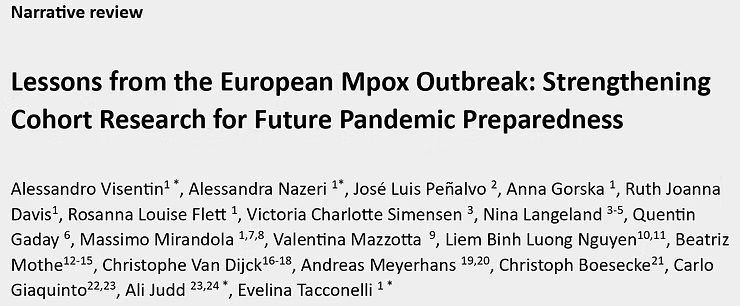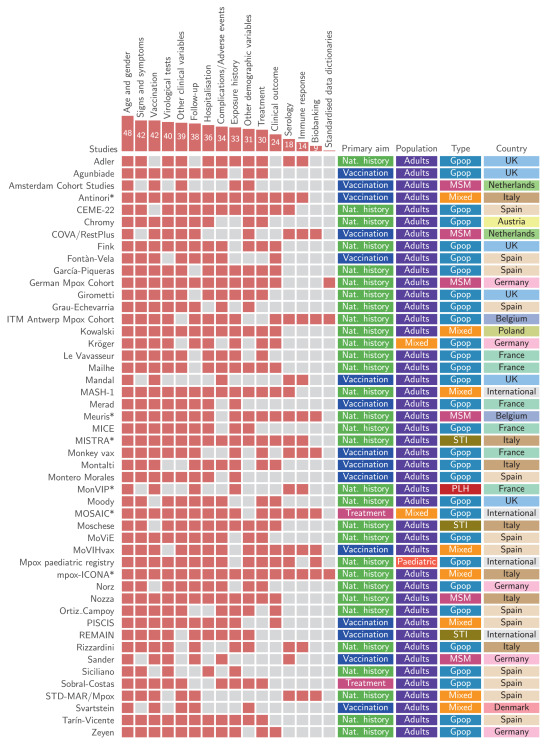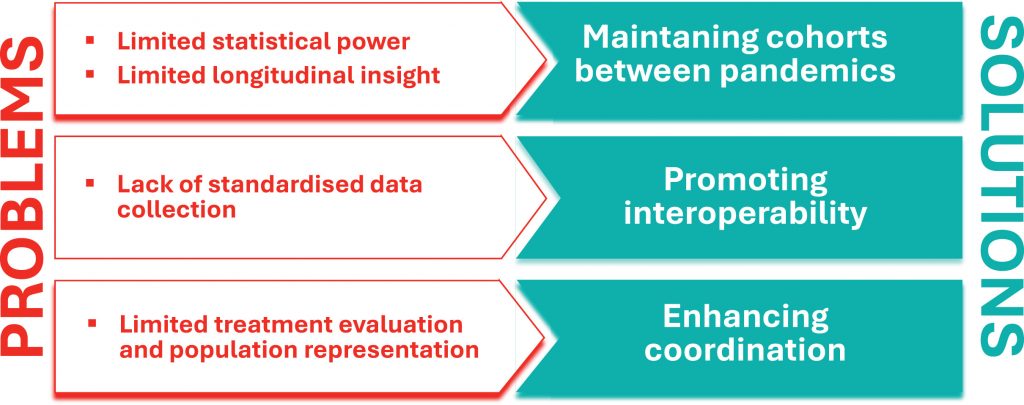Following the 2022 mpox outbreak in Europe and it’s subsequent designation as a Public Health Emergency of International Concern (PHEIC), the Cohort Coordination Board (CCB) performed an extensive mapping of European mpox cohorts as per the VERDI and CoMeCT pandemic preparedness projects.

Well-designed cohort studies are crucial for pandemic preparedness informing evidence-based infection prevention and treatment strategies. This mapping activity was performed to provide an overview of the mpox cohort environment, identifying gaps and areas for potential improvement. The full results of the mapping are available in the paper, and on the Central Data Repository of the CCB, available on this link.
The paper, spearheaded by Alessandro Visentin and Alessandra Nazeri from the ID-CARE UNIVR team, is the result of collaboration across the mpox cohorts within the CCB, and provides recommendations to enhance cohort study research and improve preparedness.
The mapping, with the last update executed in December 2024, identified a total of 49 cohort studies, with nine ongoing at the time of the search. Thirty cohorts (63%) collected data prospectively and 25 where multicentre (52%). A variety of primary aims were extracted: natural history of mpox (31, 65%); effectiveness of mpox vaccination (15, 31%); and mpox treatment (2, 4%). Two cohort studies included adults and children, and one focused only on children. Eighteen cohorts (38%) targeted populations with increased risk to sexually transmitted infection exposure. See an overview of the cohorts in Figure 1 below.

Findings show that the 2022 mpox outbreak and the PHEIC designation triggered a substantial increase in European cohort studies investigating mpox across different populations, demonstrating research community responsiveness. However, findings also highlight the persisting fragmentation of the European research landscape, ultimately missing opportunities for collaboration and hampering the generation of robust evidence. Identified challenges and potential solutions are summarised in three main areas in Figure 2 below.

The analysis provides valuable insights into the current landscape of mpox cohort studies in Europe, highlighting both strengths and critical areas for improvement, that are broadly applicable to other cohort studies collecting data on infectious diseases with epidemic and pandemic potential. The urgent need for a coordinated and standardised approach to data collection and the establishment of responsive, collaborative cohort networks, particularly between outbreaks, is clear. The paper also highlights the importance of dedicated funding and initiatives to prioritise the development of standardised data collection tools, such as common electronic eCRFs and core outcome sets, and foster collaboration through coordinated cohort networks.
About the Cohort Coordination Board
The Cohort Coordination Board is dedicated to fostering collaboration and data sharing in clinical research, particularly in the field of infectious diseases. The Board is committed to providing researchers with the resources and tools necessary to address public health emergencies effectively.


This work is part of the VERDI (101045989) and CoMeCT (101136531) projects, which were funded by the European Union.
Views and opinions expressed are however those of the authors only and do not necessarily reflect those of the European Union or the European Health and Digital Executive Agency. Neither the European Union nor the granting authority can be held responsible for them.